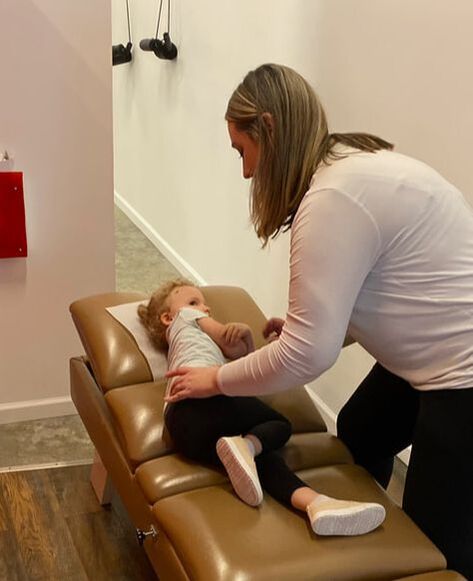|
"Some people never get adjusted and they're fine."
It's something I've heard many times. Have you ever wondered how so many people never see a chiropractor and their lives are no different? Even my husband, when I was in chiropractic school, asked me about all the people who never get adjusted. What happens to them? Chiropractors only see somewhere between 10-20% of the U.S. population. Usually for neck and low back pain initially, but many people opt for wellness care as well. It begs the question, what makes getting adjusted necessary? In order to answer that question, you have to ask yourself, "What is fine?" Are you fine if you don't have symptoms? Are you fine if you have symptoms regularly but they don't stop you from doing your usual activities? Are you fine if you occasionally have pain that puts you down for the count for several days in a row? Is it "fine" that prescription drug spending is in the HUNDREDS of BILLIONS in the U.S.? I'd say we are definitely not fine... It seems that we've normalized being "fine" to the point that we ignore how we are supposed to feel. It should be normal to feel vibrant and happy but when was the last time you asked someone how they were and they answered anything truly positive. "I'm fine" 😞 *WOMP WOMP* When speaking with patients I hear a lot about "regular headaches" or the "back pain that everyone gets" and some even tell me that their condition is hereditary. The reality of the matter is that our genes are the fork in the road, but the environment determines which path we take. Regardless of the cause, many people have been told or have come to believe on their own that it is normal to experience symptoms in some form throughout their lives. We've been conditioned to accept that which is common as normal. But it is not normal to be in pain - even bearable pain. Symptoms aside, very few people realize initially that spinal degeneration can occur before symptoms even arise. When the cervical and lumbar regions' lordotic curves are reduced, all of the structures in those regions are stressed into abnormal positions. Over time those structures begin to break down, muscles are lengthened or tightened, and range of motion is altered. Often we see patients once they are in pain (and usually have been for quite some time) and at that point we can only hope to restore the position of the spine but, unfortunately, we can't reverse that degenerative change. For chiropractors whose focus is avoiding the harmful effects of spinal degeneration, the difficulty is helping people care about something happening in their spine that often they cannot see or feel. Degeneration is more common than you might think - one analysis of studies (https://pubmed.ncbi.nlm.nih.gov/25430861/) determined that 37% of asymptomatic 20-year-olds have degeneration, and that number goes up to 96% in asymptomatic 80-year-olds. You might think, "Wow! That's great! There are so many people with spinal degeneration who don't have pain!" But what I see are people whose range of motion, reflexes, and balance are affected, who maybe don't even realize they are not functioning as well as they could. Absence of pain is not a good indicator of health - just the same as being thin doesn't mean you're healthy. This is why I stress getting your spine checked. At the very least you know your spine to be in good condition and can carry on with your life, at most you can identify potential issues and prevent them from getting worse. With today's sedentary lifestyle becoming the norm for many people - think sitting all day for work then watching TV all evening when they get home - the effects of our poor posture start to compound. If you wait until you're decades into spinal degeneration, it's much harder and can take longer to get you out of pain, and that's not even considering getting you into a place of optimal function. It's much, much easier to correct a young spine. It can seem difficult to change your thinking from reactive to preventive, especially if that's how you've done it your whole life! But it's also especially tricky when you can't see the quality of your spine on your own and when many providers are not looking for something that either isn't causing you pain (yet) or is considered "normal" pain. 💡 I challenge you to check in on your spine. A lot of my work with patients is helping them identify areas in their home/work that contribute to poor spinal health, and their health overall, so they can avoid issues in the future, help the issues they're currently dealing with, or move to a higher level of health than "fine" so they can feel GREAT.
0 Comments
|
AuthorDr. Tiffany is a chiropractor at Liberation Chiropractic & Wellness in Mobile, AL. Her passion is corrective chiropractic care for all ages that goes beyond just aches and pains to restore the spine to the best condition possible so that her patients' bodies may function properly. Archives
May 2024
Categories |



 RSS Feed
RSS Feed